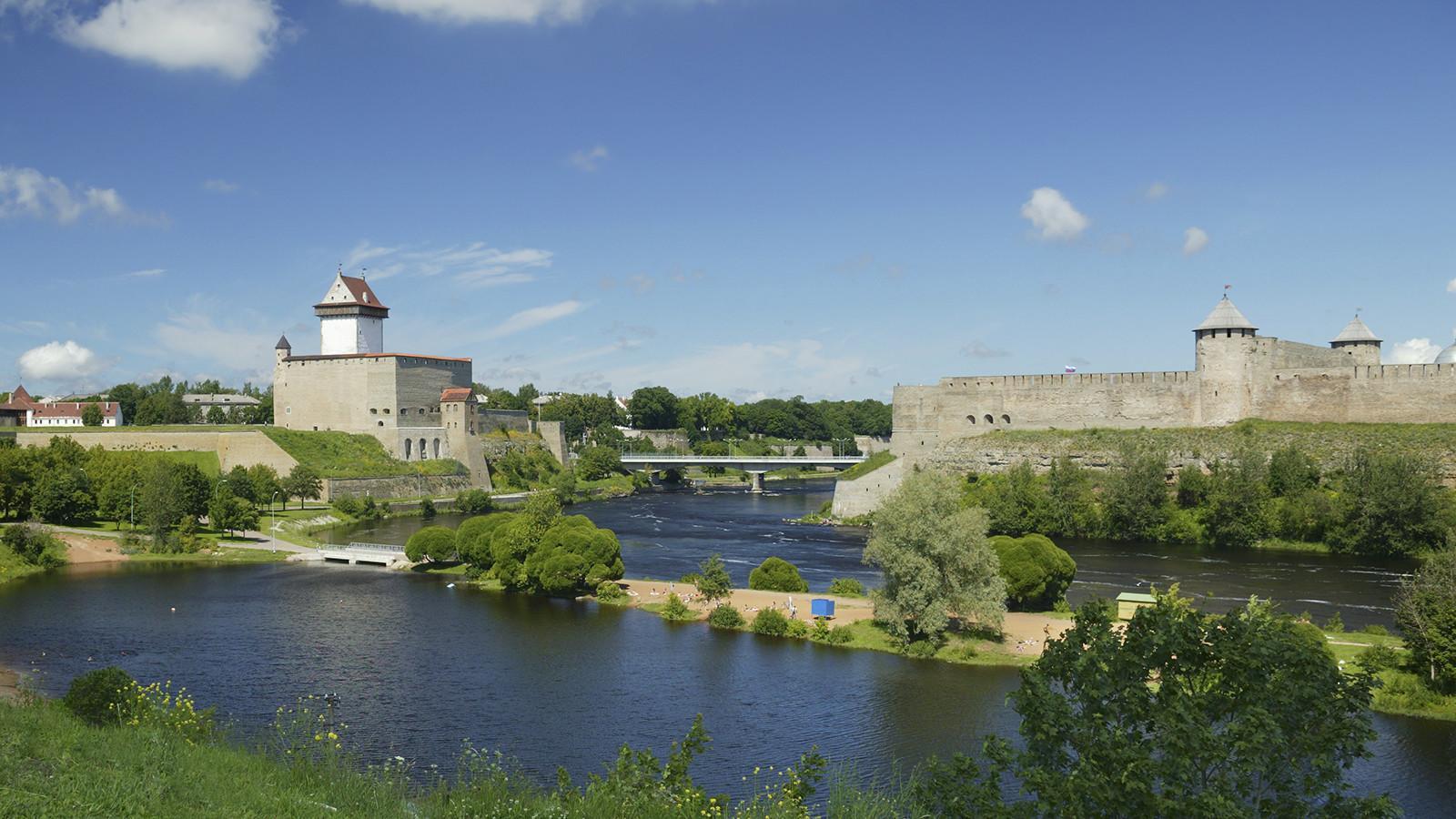Sonja Allure - One
The child sat alone on the riverbank, the warm bowl in her hands beating back the winter chill. She ate the porridge in slow, methodical bites, savoring the butter and jam her mother had mixed in, and staring across the river at the city. Behind her, the older women assumed they were out of earshot, but still spoke in Estonian, thinking the girl, who’d grown up speaking Russian, could not understand.
“Why are you leaving now?” Aunt Delia wasn’t really her aunt. Her mother’s family was from across the border in Russia proper, but Kassikoht was a small community - not much more than a campsite, really; and though it was a stone’s throw from Narva it remained isolated from the city by the river - and by something else; but the girl hadn’t been able to figure out what. Whatever it was, those who decided to live in the camp were basically one large, tightly-knit family.
“I don’t have a choice,” her mother was saying. Lying. The girl was only ten. She’d celebrate her eleventh birthday in a foreign country, surrounded by foreign people; but here, in Estonia, she’d already learned some things - like how to at least understand Estonian, though they almost exclusively spoke Russian in Kassikoht - like how to tell when her mother was lying. “The job I’ve lined up in the U.S. is too good to pass up, if we wait, I won’t be able to go, and I’ll lose this opportunity.”
“But she’s so close,” Aunt Delia was genuinely worried about this. “If she changes while you are abroad?”
“I don’t think she’s going to change?” Change into what? This was another lie, by the way. “But I’ve spoken with Teratantsija. There’s a wandering pride in northern New York who can foster her if she needs it. She won’t; but I’ve got it worked out.” Aunt Delia was looking at her. The girl imagined she could feel the older woman’s eyes boring through the back of her head.
She finished her last bite of porridge and stood up. “I’ve finished,” she called, running up the embankment to where her mother and Aunt Delia sat, fretting over…
...over whatever it was that had mother telling lies and Delia worrying about them.
The girl handed her bowl to her mother and stood expectantly waiting.
“What do you want now, Sonja,” Sofia asked, with a smile. “Are you still hungry?”
The girl, Sonja, nodded expectantly, and her mother picked up a small paper-wrapped treat. Homemade quark, with lingonberries, hand-dipped in chocolate. “Thank you, mama,” she said before turning to run back down toward the river.
“English,” her mother said in English, stopping the girl short. “How do you say it in English, please.”
Sonja stopped and looked at her mother with the sort of overdramatic exasperation that seems unique to ten year olds. She carefully, and deliberately repeated herself, in English. “Thank you, mother.” Then, in a burst of energy, she turned and ran back down the grassy bank.
“You’re inviting trouble,” Aunt Delia said in Russian. “That girl is ‘cat’ if I’ve ever seen one.”
Kassikoht was largely self-sufficient: a camping village made up of tents and campers and old trucks, but with gardens and workbenches and all manner of necessaries and entertainments. There wasn’t much call for crossing the river or driving into town. Now, though, Sonja and her mother found themselves in the back of an old, Soviet-era pick-up truck, huddled together against the cold and the snow under a trio of thick blankets.
Everything the two ladies owned in the world was packed into three large duffel bags and a small, pink My Little Pony backpack.
Sonja was quiet as they rode all the way across the country, to Tallinn, and the airport, and the end of the only life she’d known up to this point. The radio in the truck was blasting so loud, she could feel it vibrating through the metal of the truck. The driver, an old man with a bald head and long, droopy ears always listened to heavy metal from across the Baltic - wherever that was. She looked up at her mother, but didn’t ask.
She was excited about the prospect of going somewhere new, of making friends her own age, and driving across the country, and flying (!) on an airplane, and everything else about this sudden upheaval of her young life. But she was also pretty scared about it too. Even though all her friends were at least ten years older than she was, or five years younger and she’d always kind of felt like an outcast in the tiny community, she was going to miss it. She was going to miss Deda Alexei’s stories about war, and Aunt Delia’s lunches, and climbing the trees with the older kids and the internet and wifi and watching movies on Dedushka Mika’s cell phone. Did they have all of that in New York? She didn’t know.
And she didn’t know how to ask about where “across the Baltic” was in English, so she didn’t ask about any of it. Instead, she curled up closer to her mother and closed her eyes against the cold and the wind that the pounding of the music and made herself go to sleep.



Comments
Post a Comment